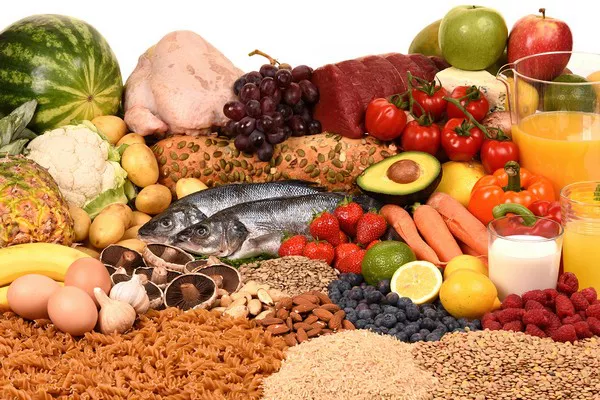Bananas are a beloved fruit worldwide, cherished for their natural sweetness and portability. Beyond their delicious taste, bananas pack a powerful nutritional punch, providing an array of essential vitamins and minerals. In this comprehensive article, we explore the vitamins found in bananas, their health benefits, and how incorporating this humble fruit into your diet can contribute to overall well-being.
[inline_related_posts title=”SEE ALSO” title_align=”left” style=”list” number=”3″ align=”none” ids=”2027,1987,1867″ by=”categories” orderby=”rand” order=”DESC” hide_thumb=”no” thumb_right=”no” views=”no” date=”yes” grid_columns=”1″ post_type=”” tax=””]
Main Vitamins in Bananas
Bananas, scientifically known as Musa spp., belong to the family Musaceae. They are one of the most widely consumed fruits globally and are revered for their convenience, versatility, and delightful flavor. However, what truly sets bananas apart is their impressive nutritional profile, including a host of vitamins that play crucial roles in maintaining good health.
1. Vitamin C: The Immune Booster
Vitamin C Content: Bananas contain a moderate amount of vitamin C, with approximately 10% of the recommended daily intake in a medium-sized banana.
Health Benefits: Vitamin C is renowned for its immune-boosting properties. It aids in the production of collagen, a vital protein for skin, cartilage, and blood vessel health. Additionally, vitamin C acts as an antioxidant, helping protect cells from oxidative damage.
SEE ALSO: 5 Vitamins that Bolster Your Immune System
2. Vitamin B6: The Metabolism Regulator
Vitamin B6 Content: Bananas are particularly rich in vitamin B6, providing around 22% of the recommended daily intake in a medium-sized banana.
Health Benefits: Vitamin B6 is instrumental in a range of metabolic processes. It assists in converting food into energy and is involved in brain development and function. Adequate vitamin B6 intake contributes to cognitive health and helps the body produce neurotransmitters such as serotonin and dopamine, which regulate mood.
3. Vitamin A: The Vision Protector
Vitamin A Content: While not exceptionally high in vitamin A, bananas contain a small amount of this essential nutrient.
Health Benefits: Vitamin A supports eye health and vision, helps maintain healthy skin and mucous membranes, and plays a role in the immune system. While bananas are not a primary source of vitamin A, every bit contributes to overall nutritional intake.
4. Folate (Vitamin B9): The Cellular Builder
Folate Content: Bananas provide a moderate amount of folate, with approximately 5% of the recommended daily intake in a medium-sized banana.
Health Benefits: Folate is crucial for DNA synthesis and cell division. It is especially important during pregnancy, as it helps prevent neural tube defects in developing fetuses. Folate also supports red blood cell formation and contributes to overall tissue growth and repair.
SEE ALSO: Top 8 Kinds Food Rich in Folic Acid (Plus Its Benefits)
5. Vitamin B3 (Niacin): The Energy Provider
Vitamin B3 Content: Bananas contain a small amount of niacin (vitamin B3).
Health Benefits: Niacin is essential for converting food into energy and supporting proper nervous system function. While the amount of niacin in bananas is relatively low, it contributes to your overall daily intake of this vital nutrient.
Other Nutrition in Bananas: More Than Just Vitamins
Bananas offer more than just vitamins; they’re also rich in minerals, dietary fiber, and antioxidants. Here’s a look at some of the additional nutritional benefits of bananas:
1. Potassium: The Heart-Healthy Mineral
Potassium Content: Bananas are famous for their potassium content, providing around 9% of the recommended daily intake in a medium-sized banana.
Health Benefits: Potassium is essential for maintaining proper heart function and blood pressure regulation. It also helps balance fluids in the body and supports muscle and nerve function.
2. Dietary Fiber: The Digestive Ally
Fiber Content: Bananas are a good source of dietary fiber, containing about 3 grams per medium-sized banana.
Health Benefits: Dietary fiber promotes healthy digestion by preventing constipation and supporting regular bowel movements. It can also help regulate blood sugar levels and contribute to a feeling of fullness, which can aid in weight management.
3. Antioxidants: Cellular Protectors
Health Benefits: Bananas contain various antioxidants, including dopamine and catechins, which help protect cells from oxidative stress. Antioxidants play a role in reducing the risk of chronic diseases and slowing the aging process.
SEE ALSO: Reveal! Is Banana High in Protein?
Incorporating Bananas into Your Diet: Tips and Ideas
Enjoying the nutritional benefits of bananas is easy and delightful. Here are some tips and ideas for incorporating bananas into your diet:
1. Snack Smart: Grab a banana as a quick and convenient snack, especially when you’re on the go. It’s nature’s portable energy booster.
2. Smoothie Star: Add sliced bananas to your morning smoothie for natural sweetness and creaminess.
3. Breakfast Boost: Top your cereal, oatmeal, or yogurt with banana slices for a delicious and nutritious breakfast.
4. Baking Bonanza: Use ripe bananas to make banana bread, muffins, or pancakes. It’s a tasty way to reduce food waste.
5. Dessert Delight: Create a simple yet satisfying dessert by drizzling banana slices with honey and sprinkling them with a dash of cinnamon.
6. Peanut Butter Pairing: Spread peanut or almond butter on banana slices for a protein-packed and satisfying snack.
Vitamin-Rich Recipes that Include Bananas
Here are two vitamin-rich recipes featuring bananas that you can enjoy:
1. Banana-Berry Blast Smoothie
Ingredients:
- 1 ripe banana
- 1/2 cup fresh or frozen strawberries
- 1/2 cup fresh or frozen blueberries
- 1/2 cup Greek yogurt (plain or flavored)
- 1/2 cup orange juice
- 1 tablespoon honey (optional for added sweetness)
- Ice cubes (optional)
- 1/2 teaspoon chia seeds (optional, for added nutrition)
Instructions:
Peel the ripe banana and place it in a blender.
Add the strawberries, blueberries, Greek yogurt, and orange juice to the blender.
If you prefer a sweeter smoothie, you can add honey at this point.
If you like your smoothie extra cold, toss in a few ice cubes.
Blend all the ingredients until smooth and creamy.
If desired, sprinkle chia seeds on top for an extra nutritional boost.
Pour into a glass and enjoy your vitamin-rich Banana-Berry Blast Smoothie!
2. Tropical Sunshine Smoothie
Ingredients:
- 1 ripe banana
- 1/2 cup fresh or frozen pineapple chunks
- 1/2 cup fresh or frozen mango chunks
- 1/2 cup coconut milk (canned or carton)
- 1/2 cup Greek yogurt (plain or vanilla)
- 1 tablespoon honey (optional for added sweetness)
- Ice cubes (optional)
- 1/2 teaspoon shredded coconut (optional, for garnish)
Instructions:
Peel the ripe banana and place it in a blender.
Add the pineapple chunks, mango chunks, coconut milk, and Greek yogurt to the blender.
If you’d like to enhance the sweetness, you can add honey.
For an extra refreshing touch, consider adding a few ice cubes.
Blend all the ingredients until the mixture is smooth and creamy.
If you want to get a little fancy, sprinkle some shredded coconut on top for garnish.
Pour into a glass, and transport yourself to the tropics with this Tropical Sunshine Smoothie!
Conclusion
Bananas are not only a delicious and accessible fruit but also a nutritional treasure trove. Packed with essential vitamins, minerals, dietary fiber, and antioxidants, bananas offer a wide array of health benefits. From boosting the immune system to supporting metabolism and heart health, the vitamins in bananas contribute to overall well-being. So, go ahead and savor this versatile fruit as a wholesome addition to your daily diet.
[inline_related_posts title=”Related Topics” title_align=”left” style=”list” number=”3″ align=”none” ids=”2027,2024,1984″ by=”categories” orderby=”rand” order=”DESC” hide_thumb=”no” thumb_right=”no” views=”no” date=”yes” grid_columns=”1″ post_type=”” tax=””]

































